Claude Lanzmann
Nascimento : 1925-11-27, Paris, Ile-de-France, France
Morte : 2018-07-05

Himself (archive footage)
A chronicle of the Holocaust, told by the resilient survivors who lived through it.

Claude Lanzmann
After his retirement, french philosopher and bullfighting enthusiast Francis Wolff decides to embark on a journey to France, Spain and Mexico joined by two mexican filmmakers who hardly know anything about bullfighting, a culture whose days seem to be numbered. During their road trip, they encounter numerous personalities with whom they reflect on mankind’s relationship with animals and nature, but most importantly on our relationship with death and the meaning of the ultimate journey: life itself.
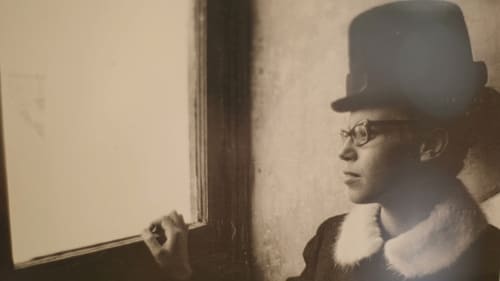
Self (Archival footage)
This film tells the life story of Ziva Postec, emphasizing the period when she was editing Shoah from 350 hours of footage.

Since 1999, Claude Lanzmann has made several films that could be considered satellites of Shoah, comprised of interviews conducted in the 1970s that didn’t make it into the final, monumental work. He has just completed a series of four new films, built around four women from four different areas of Eastern Europe with four different destinies, each finding herself unexpectedly and improbably alive after war’s end.

Writer
Since 1999, Claude Lanzmann has made several films that could be considered satellites of Shoah, comprised of interviews conducted in the 1970s that didn’t make it into the final, monumental work. He has just completed a series of four new films, built around four women from four different areas of Eastern Europe with four different destinies, each finding herself unexpectedly and improbably alive after war’s end.

Director
Since 1999, Claude Lanzmann has made several films that could be considered satellites of Shoah, comprised of interviews conducted in the 1970s that didn’t make it into the final, monumental work. He has just completed a series of four new films, built around four women from four different areas of Eastern Europe with four different destinies, each finding herself unexpectedly and improbably alive after war’s end.
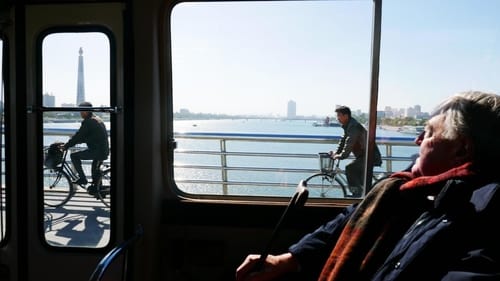
Himself
Napalm is the story of the breathtaking and brief encounter, in 1958, between a French member of the first Western European delegation officially invited to North Korea after the devastating Korean war and a nurse working for the Korean Red Cross hospital, in Pyongyang, capital of the Democratic People’s Republic of Korea.

Writer
Napalm is the story of the breathtaking and brief encounter, in 1958, between a French member of the first Western European delegation officially invited to North Korea after the devastating Korean war and a nurse working for the Korean Red Cross hospital, in Pyongyang, capital of the Democratic People’s Republic of Korea.

Director
Napalm is the story of the breathtaking and brief encounter, in 1958, between a French member of the first Western European delegation officially invited to North Korea after the devastating Korean war and a nurse working for the Korean Red Cross hospital, in Pyongyang, capital of the Democratic People’s Republic of Korea.
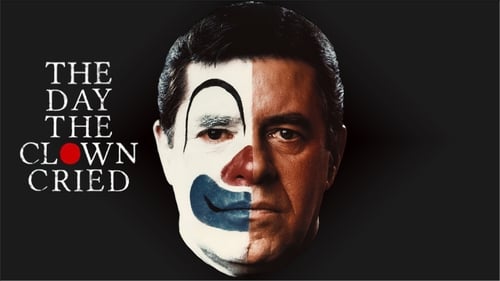
Self
A documentary directed by Eric Friedler about Jerry Lewis' never released movie "The Day The Clown Cried".

The process of making Shoah.
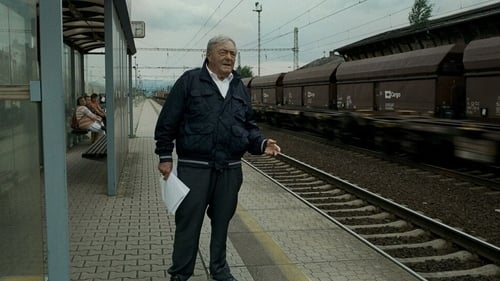
Himself
Um lugar: Theresienstadt. Um lugar único de propaganda que Adolf Eichmann chamou de 'Gueto Modelo', projetado para enganar o mundo e o povo judeu em relação à sua natureza real, para ser o último passo antes da câmara de gás. Um homem: Benjamin Murmelstein, último presidente do Conselho Judeu de Theresienstadt, um herói caído condenado ao exílio, que foi forçado a negociar dia após dia de 1938 até o final da guerra com Eichmann, a cujo julgamento Murmelstein nem sequer foi chamado para testemunhar. Mesmo que ele fosse, sem dúvida, aquele que conhecia melhor o carrasco nazista. Mais de vinte e cinco anos depois de Shoah, o novo filme de Claude Lanzmann revela um aspecto pouco conhecido, mas fundamental, do Holocausto, e esclarece as origens da 'Solução Final' como nunca antes. (e 12 - Estimado 12 Anos)

Writer
Um lugar: Theresienstadt. Um lugar único de propaganda que Adolf Eichmann chamou de 'Gueto Modelo', projetado para enganar o mundo e o povo judeu em relação à sua natureza real, para ser o último passo antes da câmara de gás. Um homem: Benjamin Murmelstein, último presidente do Conselho Judeu de Theresienstadt, um herói caído condenado ao exílio, que foi forçado a negociar dia após dia de 1938 até o final da guerra com Eichmann, a cujo julgamento Murmelstein nem sequer foi chamado para testemunhar. Mesmo que ele fosse, sem dúvida, aquele que conhecia melhor o carrasco nazista. Mais de vinte e cinco anos depois de Shoah, o novo filme de Claude Lanzmann revela um aspecto pouco conhecido, mas fundamental, do Holocausto, e esclarece as origens da 'Solução Final' como nunca antes. (e 12 - Estimado 12 Anos)

Director
Um lugar: Theresienstadt. Um lugar único de propaganda que Adolf Eichmann chamou de 'Gueto Modelo', projetado para enganar o mundo e o povo judeu em relação à sua natureza real, para ser o último passo antes da câmara de gás. Um homem: Benjamin Murmelstein, último presidente do Conselho Judeu de Theresienstadt, um herói caído condenado ao exílio, que foi forçado a negociar dia após dia de 1938 até o final da guerra com Eichmann, a cujo julgamento Murmelstein nem sequer foi chamado para testemunhar. Mesmo que ele fosse, sem dúvida, aquele que conhecia melhor o carrasco nazista. Mais de vinte e cinco anos depois de Shoah, o novo filme de Claude Lanzmann revela um aspecto pouco conhecido, mas fundamental, do Holocausto, e esclarece as origens da 'Solução Final' como nunca antes. (e 12 - Estimado 12 Anos)

Himself
A powerful new film about Jan Karski, the Polish resistance figure who attempted to expose the Warsaw Ghetto and Belzec, and met with President Franklin D. Roosevelt and Supreme Court Justice Felix Frankfurter.

Writer
A powerful new film about Jan Karski, the Polish resistance figure who attempted to expose the Warsaw Ghetto and Belzec, and met with President Franklin D. Roosevelt and Supreme Court Justice Felix Frankfurter.

Director
A powerful new film about Jan Karski, the Polish resistance figure who attempted to expose the Warsaw Ghetto and Belzec, and met with President Franklin D. Roosevelt and Supreme Court Justice Felix Frankfurter.

Writer
At the occasion of the sixtieth anniversary of Israel, Claude Lanzmann made an interview of Ehud Barak, on March 1st, 2008.

Director
At the occasion of the sixtieth anniversary of Israel, Claude Lanzmann made an interview of Ehud Barak, on March 1st, 2008.

Self - Interviewer
At the occasion of the sixtieth anniversary of Israel, Claude Lanzmann made an interview of Ehud Barak, on March 1st, 2008.

Writer
A Claude Lanzmann documentary about one uprising by Jews in a Nazi-run concentration camp taken from his Shoah interviews.

Himself - Interviewer
A Claude Lanzmann documentary about one uprising by Jews in a Nazi-run concentration camp taken from his Shoah interviews.

Director
A Claude Lanzmann documentary about one uprising by Jews in a Nazi-run concentration camp taken from his Shoah interviews.

Himself
An interview with a WWII Red Cross official who wrote a glowing report on a Jewish ghetto-cum-death camp.

Producer
An interview with a WWII Red Cross official who wrote a glowing report on a Jewish ghetto-cum-death camp.

Writer
An interview with a WWII Red Cross official who wrote a glowing report on a Jewish ghetto-cum-death camp.

Director
An interview with a WWII Red Cross official who wrote a glowing report on a Jewish ghetto-cum-death camp.

Writer
The ideologies underlying the foundation of modern Israel are explored in this documentary, the third of a trilogy (created over a twenty year span) exploring the Jewish experience. The two earlier documentaries, "Porquoi Israel," and "Shoah," have had great effect on the ways documentaries are produced. "Tsahal" zeroes in on the crucial role of the military in Israeli society and politics. The film uses many in-depth interviews to present the many feelings and thoughts about the Israeli military.

Director
The ideologies underlying the foundation of modern Israel are explored in this documentary, the third of a trilogy (created over a twenty year span) exploring the Jewish experience. The two earlier documentaries, "Porquoi Israel," and "Shoah," have had great effect on the ways documentaries are produced. "Tsahal" zeroes in on the crucial role of the military in Israeli society and politics. The film uses many in-depth interviews to present the many feelings and thoughts about the Israeli military.

Himself
The ideologies underlying the foundation of modern Israel are explored in this documentary, the third of a trilogy (created over a twenty year span) exploring the Jewish experience. The two earlier documentaries, "Porquoi Israel," and "Shoah," have had great effect on the ways documentaries are produced. "Tsahal" zeroes in on the crucial role of the military in Israeli society and politics. The film uses many in-depth interviews to present the many feelings and thoughts about the Israeli military.
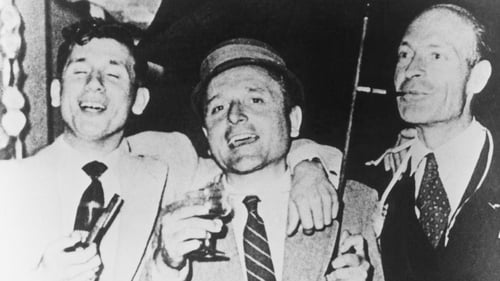
Self
Hôtel Terminus é um documentário realizado em 1988 dirigido por Marcel Ophüls. Com 267 minutos de duração, apresenta a vida completa do crimonoso de guerra nazista Klaus Barbie, agente da Gestapo em Lyon.

Self - Interviewer
Claude Lanzmann dirigiu este documentário de 9 horas e meia do Holocausto sem usar um único quadro de imagens de arquivo. Ele entrevista sobreviventes, testemunhas e ex-nazistas (a quem ele tinha que filmar secretamente, uma vez que eles só concordaram em ser entrevistados pelo áudio). Seu estilo de entrevista, pedindo os detalhes mais minuciosos é eficaz em somar esses detalhes para dar um retrato horripilante dos eventos do genocídio nazista. Ele também mostra, ou melhor, deixa mostrar alguns de seus assuntos, que o anti-semitismo que causou a morte de 6 milhões de judeus no Holocausto ainda está vivo em muitas pessoas que ainda vivem na Alemanha, Polônia e outros lugares. (e 12 - Estimado 12 Anos)

Writer
Claude Lanzmann dirigiu este documentário de 9 horas e meia do Holocausto sem usar um único quadro de imagens de arquivo. Ele entrevista sobreviventes, testemunhas e ex-nazistas (a quem ele tinha que filmar secretamente, uma vez que eles só concordaram em ser entrevistados pelo áudio). Seu estilo de entrevista, pedindo os detalhes mais minuciosos é eficaz em somar esses detalhes para dar um retrato horripilante dos eventos do genocídio nazista. Ele também mostra, ou melhor, deixa mostrar alguns de seus assuntos, que o anti-semitismo que causou a morte de 6 milhões de judeus no Holocausto ainda está vivo em muitas pessoas que ainda vivem na Alemanha, Polônia e outros lugares. (e 12 - Estimado 12 Anos)

Director
Claude Lanzmann dirigiu este documentário de 9 horas e meia do Holocausto sem usar um único quadro de imagens de arquivo. Ele entrevista sobreviventes, testemunhas e ex-nazistas (a quem ele tinha que filmar secretamente, uma vez que eles só concordaram em ser entrevistados pelo áudio). Seu estilo de entrevista, pedindo os detalhes mais minuciosos é eficaz em somar esses detalhes para dar um retrato horripilante dos eventos do genocídio nazista. Ele também mostra, ou melhor, deixa mostrar alguns de seus assuntos, que o anti-semitismo que causou a morte de 6 milhões de judeus no Holocausto ainda está vivo em muitas pessoas que ainda vivem na Alemanha, Polônia e outros lugares. (e 12 - Estimado 12 Anos)

Himself
Using interviews and other footage shot especially for this documentary, French director Claude Lanzmann investigates the state of Israel in 1972. This movie concentrates on Israelis going about their business of everyday living.

Writer
Using interviews and other footage shot especially for this documentary, French director Claude Lanzmann investigates the state of Israel in 1972. This movie concentrates on Israelis going about their business of everyday living.

Director
Using interviews and other footage shot especially for this documentary, French director Claude Lanzmann investigates the state of Israel in 1972. This movie concentrates on Israelis going about their business of everyday living.


































